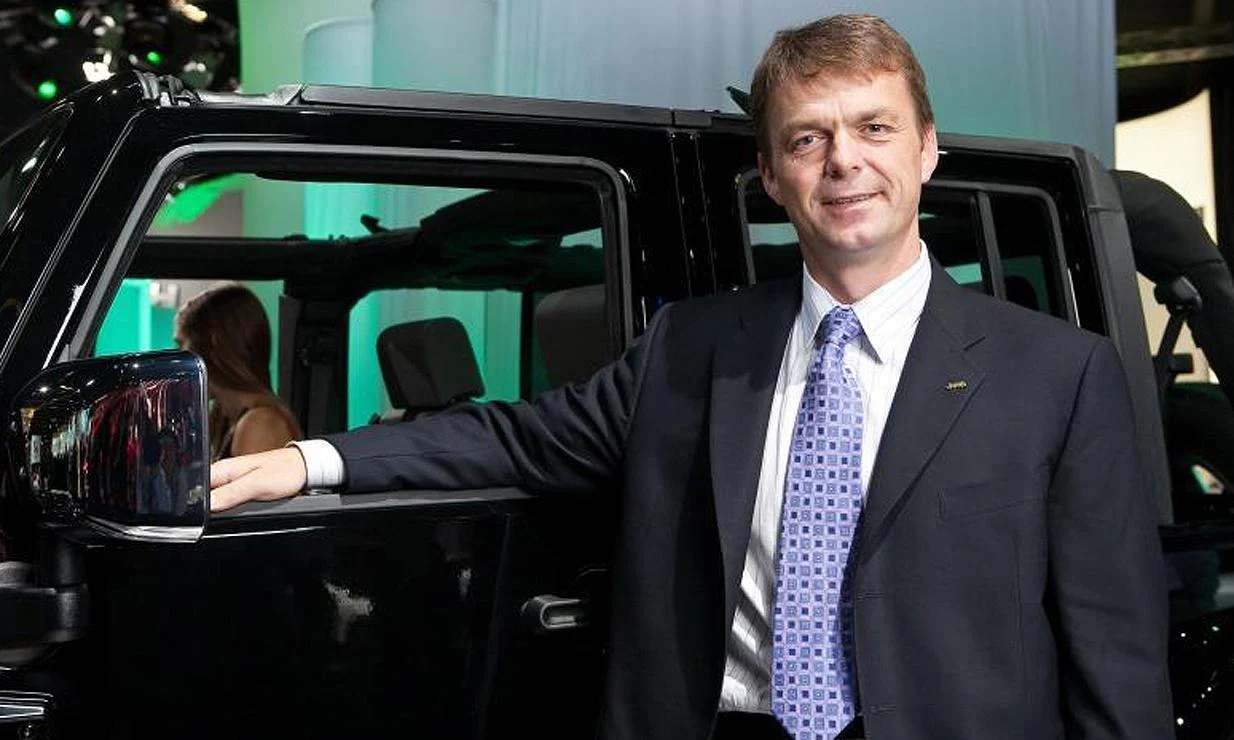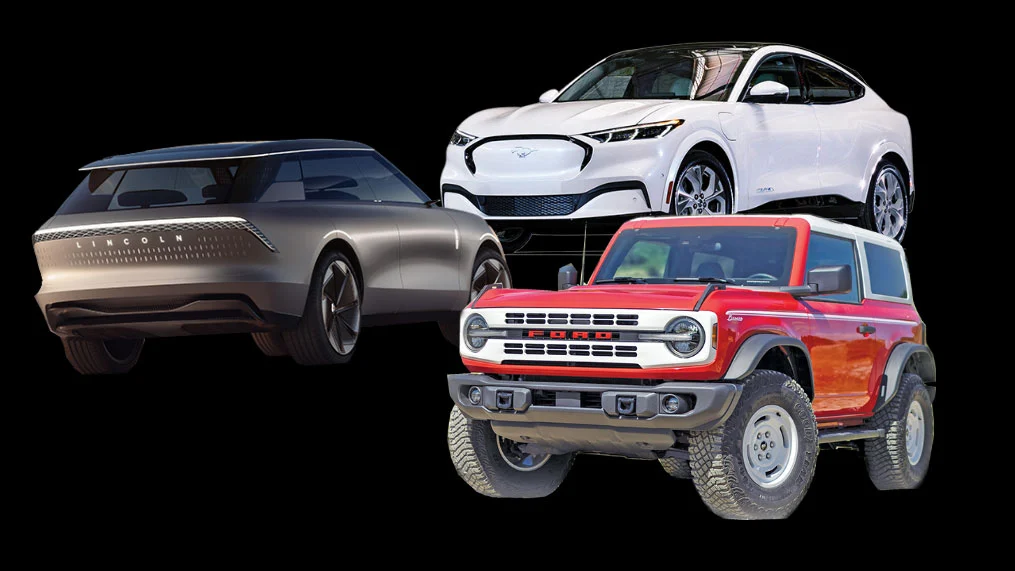United Auto Workers (UAW) Strike Exposes Climate and Labor Tensions in Automotive Industry
The United Auto Workers (UAW) union went on strike against major US automakers last week, the first time workers simultaneously walked off the job at Ford, GM and Stellantis. While negotiations continue, the strike highlights deeper conflicts between labor rights and climate action.
The UAW represents nearly 150,000 workers at the Detroit-based “Big Three” companies. But so far, the union has utilized a targeted approach, only striking specific plants that build a limited number of models like the Ford Bronco and Jeep Wrangler.

This puts pressure on automakers while stretching the union’s strike fund. But it also means most factories continue operating, limiting wider impacts. UAW leaders say this escalating strategy aims to keep automakers guessing.
Still, the strike signals renewed labor tensions amidst the transition to electric vehicles (EVs) and sustainability. Workers want adequate compensation as companies shift to EVs, while automakers say profits must be reinvested in retooling for greener products.

The walkout spotlights glaring contradictions between corporate sustainability commitments and workers’ calls for more equitable treatment. Despite championing progressive ideals publicly, automakers now face accusations of “greenwashing” by rebuffing union demands at the bargaining table.
The episode provides sobering lessons on unintended consequences of the sustainability transition. While climate policy aims for collective societal good, it imposes concentrated costs on particular groups like labor. Finding socially just solutions to align economic security and emission cuts will require moving beyond simplistic win-win narratives.

Sustainability Commitments Meet Labor Resistance
The Big Three position themselves as leaders on environment, social and governance (ESG) issues. GM and Ford boast extensive climate target setting and disclosure practices. Stellantis publishes annual corporate social responsibility reports aligned with UN sustainability goals.

But UAW leaders argue profit-sharing remains unfair, with CEO pay nearly 300 times higher than median employee compensation. The union seeks significant raises as automaker profits rebound from the recession. However, companies contend funds are needed to convert factories to EVs.
Tensions also exist around dividends to shareholders. UAW President Shawn Fain criticized automakers buying back billions in shares rather than increasing worker pay. This contradicts ESG principles prioritizing equitable stakeholder treatment.

Additionally, the UAW worries EV transitions will threaten union jobs. EVs require fewer workers and many new plants are non-unionized. The union wants companies to ensure fair wages and representation in battery factories, supply chains and joint ventures.
Autoworkers Pay the Price
Striking employees call out glaring contradictions between automakers’ sustainability stances and treatment of workers. For instance, GM and Ford respectively bought back $5 billion in shares over the past year rather than increasing employee compensation. Such financial moves cater to shareholders, directly undermining ESG’s vision for equitable treatment of all stakeholders.

Meanwhile, C-suite compensation at the Big Three automakers ranges from 281 to 365 times higher than average worker pay. UAW President Shawn Fain contends employees deserve significantly higher wages after weathering a brutal decade of recession-era plant closures and concessions.

Autoworkers also shoulder heavy burdens as companies shift toward electric vehicles (EVs) in order to reduce fleet emissions and comply with policy mandates. EVs require fewer components and workers to assemble than internal combustion engine vehicles. GM's Barra herself admits EVs will likely displace jobs, saying “there will be some impact.”
Alarmingly, new EV battery factories tend to be non-unionized operations. For instance, workers at a former GM Ohio plant now face starting pay of only $16.50 per hour producing batteries. That compares to $32 per hour for UAW counterparts doing traditional automotive roles.

The union argues autoworkers should not bear the costs of executing public climate mandates. But governments subsidize these "green" industry shifts without requiring labor safeguards, fueling a concerning “race to the bottom” on wages according to UAW’s Fain.
Automakers’ Sustainability GAP
Legacy auto giants Ford, GM and Stellantis market themselves as leaders on environment, social and governance (ESG) issues. They publish glossy sustainability reports touting ambitious climate goals, community values and transparency.

GM’s CEO Mary Barra declares ambitions to “lead the EV revolution” and eliminate tailpipe emissions entirely. Ford has pledged to achieve carbon neutrality across its global operations by 2050. Stellantis, born out of a merger between Fiat Chrysler and Peugeot, aims for net zero greenhouse gas emissions in the next 15 years.
So why are 150,000 United Auto Workers (UAW) now on strike against these self-branded corporate sustainability champions? Union leaders contend nearly a decade into economic recovery, autoworkers still await their fair share of rising profits earned since the Great Recession.

Despite sophisticated public relations, at the bargaining table companies so far reject worker demands like pay increases matching executive compensation growth. Labor advocates argue ESG’s lofty ideals too often dangerously obscure what’s happening daily on factory floors.
“ESG has become a cover for some of the country’s biggest corporate polluters and union-busters,” says Liesl Orenic, Director of the Dominican Sisters’ Racial Justice Program. She cautions that sustainability initiatives, however well-intentioned, often focus externally while ignoring internal labor practices.
Sustainability Transition Tradeoffs Revealed
Economic transitions inherently create winners and losers. Proponents of sustainability shifts often ignore this reality. Or they insist that moving toward “green” technology and business models will organically benefit everyone through job creation and other means.

The autoworker strike throws harsh light on flaws in this optimistic narrative. It spotlights how sustainability can prove intensely disruptive, transferring wealth and political power across industries and social groups. Absent careful policy design, the labor challenges glimpsed today presage wider dislocation across many sectors.
Consider electric utilities, steel, concrete, and transportation facing upheavals moving away from fossil fuels. Carbon-heavy industries like tourism, aviation, shipping, agriculture, and logistics also stare down radical transformations to cut emissions. In every sector, sustainability provokes transitional risks on top of the intended environmental benefits.

Preventing severe economic and social instability requires explicitly acknowledging and planning for sustainability’s redistributive impacts. Then channeling transitional assistance like job retraining and relocation support to help cushion shocks for affected workers and communities. The ability to smoothly navigate toward a low-carbon future without leaving people behind depends on it.
Balancing Sustainability and Just Transition
The auto industry faces government mandates to adopt EVs and reduce emissions. But workers displaced by sustainability shifts argue they bear the burden for climate progress.

UAW President Fain contends companies and governments are not managing transitions equitably. He states that public funds for EVs and batteries should require union labor protections and comparable wages.
The concept of a “just transition” suggests policies must shield fossil fuel-dependent workers and communities in the energy shift. But the strike reveals this principle now applies far beyond coal to sectors like autos.

Some form of transition assistance will likely be needed across industries facing sustainability disruption. Finding politically and economically feasible solutions remains challenging.
Rethinking Climate and Labor Policy
In theory, ESG guides firms to balance profitability with social and environmental objectives. But tensions clearly persist surrounding how to distribute company success.

Automakers promote sustainability agendas publicly while rejecting worker demands at the bargaining table. This reveals fundamental conflicts embedded within ESG.
Sustainability advocates often invoke climate change’s inherent injustice: that those least economically responsible for emissions will bear the worst environmental consequences. But labor leaders now decry fundamental injustice in many green policies dislocating workers in carbon-intensive fields to advance broad climate aims.

Progressive climate policy requires a corresponding social contract to protect those impacted. Constructive solutions will depend on dropping false win-win narratives to grapple with real trade-offs.
Resolving this tension demands new social contracts to share the burdens of transition more equitably. “Just transition” policies represent one avenue to help individual workers evolve their skills and locations to fill emerging roles in a changed economy. Expanded unemployment guarantees, targeted retraining programs, relocation vouchers and other labor supports could help cushion shocks.

Some experts also propose linking public investments and subsidies in green industries to local hiring and wage standards through new regulations. Targeted taxes on sectors benefiting from sustainability shifts could fund assistance to affected groups. But we must move beyond vague notions of “just transition” toward tailored solutions reflecting modern realities.
Getting the incentives and consequences right in climate policy can enable sustainability to lift up rather than divide communities. But it requires wrestling with complex tradeoffs rather than simply celebrating simplistic win-win scenarios.

The auto strike provides an important lesson in reckoning with transition costs. Addressing climate change in a stable manner necessitates providing economic security for affected groups like labor.
.png)